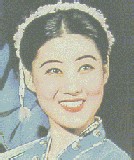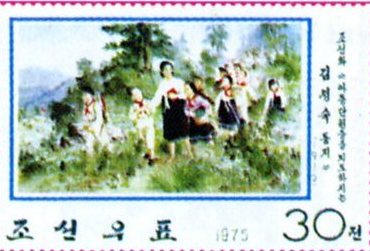Who’s Afraid of Ko Yong Hui?
Despite all of the DPRK’s activity around the hereditary succession of Kim Jong Un, missing from the narratives and rumors is any word of Ko Yong Hui. Ko was KJI’s 4th wife and the mother of three of his children. She died in 2004. Dong-a Ilbo reports on the missing maternal link:
Baek Seung-joo, director of the North Korean Military Research Division of the Center for Security and Strategy under the (South) Korea Institute for Defense Analyses, cited the large-scale idolization campaign that began in 1974, when Kim Jong Il was officially named to succeed his father Kim Il Sung.
Baek said the 1974 campaign is in stark contrast to the silence over Kim Jong Un’s late mother Koh Young-hee, who died in 2004.
After his appointment as his father’s successor, Kim Jong Il began an idolization campaign for his mother, Kim Jong Suk, to solidify his grip on power. Based on his mother’s participation in guerrilla warfare against Japanese colonial rule of the Korean Peninsula, Kim Jong Il called her “the heroine of the anti-Japanese struggle” and “mother of the revolution” and named districts and universities after her.
Though the North Korean leadership has been enthusiastically praising Kim Jong Un since last year, it has not mentioned his mother’s name internally or externally even after he first appeared in public Sept. 28.
Analysts say Pyongyang finds it difficult to idolize Koh because she was Kim Jong Il’s second mistress, unlike his mother who was the first wife of Kim Il Sung. Others downplay this theory, however, saying Koh could be idolized as Kim Jong Il’s legitimate wife because his official wife, Kim Young Sook, failed to give him a son, while Song Hye Rim, the mother of his eldest son Kim Jong Nam, was only a mistress.
Speculation also has it that the heir apparent’s mother was not Koh but Kim Ok, the North Korean leader’s third mistress. Critics say this is a far-fetched argument, however, because Koh is confirmed to have reared the leader’s second son, Kim Jong Chol, as Kim Jong Un’s blood brother.
Ko called Jong Un “the little [Morningstar] general.” From 2002 to 2006 a series of articles and essays (including the occasional political piece) appeared in the DPRK press under the by-line Ko Yong Hui. There were also rumors that the MPAF General Political Department conducted a political education and veneration campaign for Ko. These efforts were likely connected to establishing the conditioning around a 3rd generation hereditary succession of Jong Un’s older brother, Kim Jong Chol. The publicity campaign gradually desisted due to Ko’s death, personnel changes in the central party in 2007 and Kim Jong Chol’s lack of interest in politics.
One rumor about the hereditary succession’s publicity is the regime’s emphasis on KJU’s ties to Wonsan, which a Japanese academic expert suggested could be the means for integrating Ko Yong Hui (who was born in Osaka) into the Jong Un narrative.

